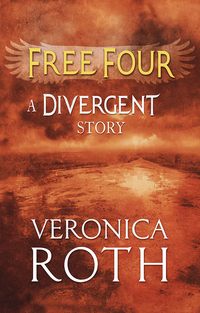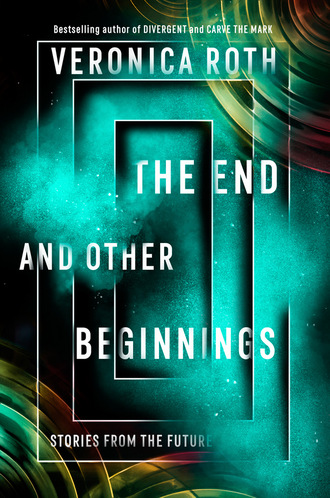
Полная версия
The End and Other Beginnings
“This is why you had to drop art.”
“Because I’m not curious about charred marshmallows?”
“No.” I laughed. “Because you can be perfectly content instead of … perpetually unsettled.”
He raised his eyebrows. “Are you calling me simpleminded? Like a golden retriever or something?”
“No!” I shook my head. “I mean, for one thing, if you were a dog, you would obviously be a labradoodle—”
“A labradoodle?”
“—and for another, if we were all the same, it would be a boring world.”
“I still think you were being a little condescending.” He paused, and smiled at me. “I can give it a pass, though, because you’re obviously still in your idealistic-adolescent-art-student phase—”
“Hypocrisy!” I cried, pointing at him. “The definition of ‘condescending’ may as well be telling someone they’re going through a phase.”
Matt’s response was to seize the stick from my hand, blow out the flames of the disintegrating marshmallow, and pull it free, tossing it from hand to hand until it cooled. Then he shoved it—charred, but still gooey on the inside—into his mouth.
“Experiment over,” he said with a full mouth. “Come on, let’s go.”
“Go where?”
He didn’t answer, just grabbed me by the elbow and steered me away from the bonfire. When we had found the path just before the rocks, he took off running, and I had no choice but to follow him. I chased him up the path, laughing, the warm summer air blowing over my cheeks and through my hair.
Then I remembered.
He was leading us to the dune cliff—a low sand cliff jutting out over the water. It was against beach rules to jump off it, but people did it anyway, mostly people our age who hadn’t yet developed that part of the brain that thought about consequences. A gift as well as a curse.
I watched as Matt sprinted off the cliff, flailing in the air for a breathless moment before he hit the water.
I stopped a few feet from the edge. Then I heard him laughing.
“Come on!” he shouted.
I was more comfortable just watching antics like these, turning them into a myth in my mind, a legend. I watched life so that I could find the story inside it—it helped me make sense of things. But sometimes I got tired of my own brain, perpetually unsettled as it was.
This time I didn’t just watch. I backed up a few steps, shook out my trembling hands, and burst into a run. I ran straight off the edge of the cliff, shoes and jeans and all.
A heart-stopping moment, weightless and free.
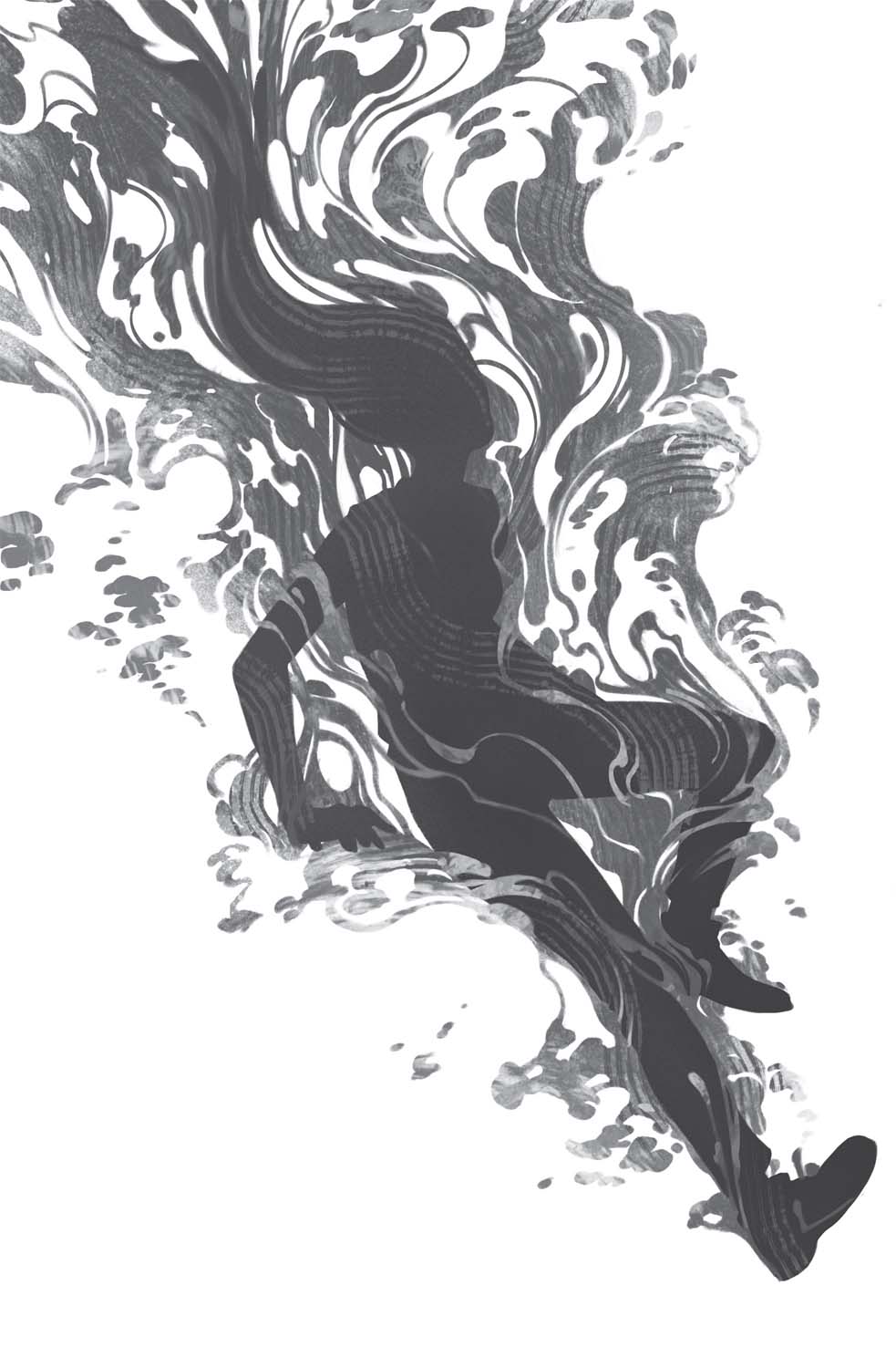
Wind on my ankles, stomach sinking, and then I sliced into the water like a knife. The current wrapped around me. I kicked like a bullfrog, pushing myself to the surface.
“Now that’s what I’m talking about,” Matt said as I surfaced.
As our eyes met across the water, I remembered where I really was. Lying in a hospital room. Unaware of how much time had actually passed.
“I like this memory, too,” he said to me, smiling, this time in the visitation instead of the memory. “Except for the part when I realized my dad’s old wallet was in my pocket when I jumped. It was completely ruined.”
“Oh, shit,” I breathed. “You never said.”
He shrugged. “It was just a wallet.”
That was a lie, of course. No object that had belonged to Matt’s father was “just” something, now that he was gone.
He said, “So this is your favorite memory?”
“It’s … I …” I paused, kicking to keep myself afloat. The water was cool but not cold. “I never would have done something like this without you.”
“You know what?” He tilted back, so he was floating. “I wouldn’t have done it without you, either.”
“It’s your turn,” I said. “Favorite memory. Go.”
“Okay. But don’t forget, you asked for this.”
I had always thought he was cute—there was no way around it, really, short of covering my eyes every time he was there. Especially after he cut the floppy mess of hair short and you could see his face, strong jaw and all. He had a dimple in his left cheek but not his right one. His smile was crooked. He had long eyelashes.
I might have developed a crush on him, if he hadn’t been dating someone when we first became friends. And it seemed like Matt was always dating someone. In fact, I counseled him through exactly three girlfriends in our friendship: the first was Lauren Gallagher, a tiny but demanding gymnast who drove him up the wall; the second, Anna Underhill, my friend from first grade, who didn’t have anything in common with him except an infectious laugh; and the third, our mutual acquaintance Tori Slaughter (an unfortunate last name), who got drunk and made out with another guy at a Halloween party shortly after their fifth date. Literally—just two hours after their fifth date, she had another guy’s tongue in her mouth. That was the hardest one, because she seemed really sad afterward, so he hadn’t been able to stay mad at her, even while he was ending things. Matt never could hang on to anger, even when he had a right to; it slipped away like water in a fist. Unless it had to do with me. He had been angry at me for longer than he was ever angry with a girlfriend.
For my part, I had had a brief interlude with Paul (nickname: Paul the Appalling, courtesy of Matt) involving a few hot make-out sessions on the beach one summer, before I discovered a dried-up-booger collection in the glove box of his car, which effectively killed the mood. Otherwise, I preferred to stay solitary.
Judging by what Anna had told me while they were dating, girls had trouble getting Matt to stop joking around for more than five seconds at a time, which got annoying when they were trying to get to know him. I had never had that problem.
I heard rain splattering and the jingle of a wind chime—the one hanging next to Matt’s front door. My hair was plastered to the side of my face. Before I rang the bell, I raked it back with my fingers and tied it in a knot. It had been long then, but now its weight was unfamiliar. I was used to it tickling my jaw.
He answered the door, so the screen was between us. He was wearing his gym shorts—his name was written on the front of them, right above his knee—and a ragged T-shirt that was a little too small. He had dark circles under his eyes—darker than usual, that is, because Matt always had a sleepy look to his face, like he had just woken up from a nap.
He glanced over his shoulder to the living room, where his mother was sitting on the couch, watching television. He drew the door shut behind him, stepping out onto the porch.
“What is it?” he said, and at the sound of his voice—so hollowed out by grief—I felt a catch in my own throat. In the memory as well as in the visitation. It never got easier to see him this way.
“Can you get away for an hour?” I said.
“I’m sorry, Claire, I’m just … not up for hanging out right now.”
“Oh, we’re not going to hang out. Just humor me, okay?”
“Fine. I’ll tell Mom.”
A minute later he was in his old flip-flops (taped back together at the bottom), walking through the rain with me to my car. His gravel driveway was long. In the heat of summer the brush had grown high, crowding the edge, so I had parked on the road.
Matt’s house was old and small and musty. He’d had a bedroom once, before his grandmother had to move in, but now he slept on the couch in the living room. Despite how packed in his family was, though, his house was always open to guests, expanding to accommodate whoever wanted to occupy it. His father had referred to me as “daughter” so many times, I had lost track.
His father had died three days before. Yesterday had been the funeral. Matt had helped carry the coffin, wearing an overlarge suit with moth-eaten cuffs that had belonged to his grandfather. I had gone with Anna and Jack and all our other friends, in black pants instead of a dress—I hated dresses—and we had eaten the finger food and told him we were sorry. I had been sweaty the whole time because my pants were made of wool and Matt’s house didn’t have air-conditioning, and I was pretty sure he could feel it through my shirt when he hugged me.
He had thanked us all for coming, distractedly. His mother had wandered around the whole time with tears in her eyes, like she had forgotten where she was and what she was supposed to do there.
Now, three days later, Matt and I got in the car, soaking my seats with rainwater. In the cupholder were two cups: one with a cherry slushie (mine) and the other with a strawberry milk shake (for him). I didn’t mention them, and he didn’t ask before he started drinking.
I felt struck, looking back on the memory, by how easy it was to sit in the silence, listening to the pounding rain and the whoosh-whoosh of the windshield wipers, without talking about where we were heading or what was going on with either of us. That kind of silence between two people was even rarer than easy conversation. I didn’t have it with anyone else.
I navigated the soaked roads slowly, guiding us to the parking lot next to the beach, then I parked. The sky was getting darker, not from the waning of the day but from the worsening storm. I undid my seat belt.
“Claire, I—”
“We don’t need to talk,” I said, interrupting. “If all you want to do is sit here and finish your milk shake and then go home, that’s fine.”
He looked down at his lap.
“Okay,” he said.
He unbuckled his seat belt, too, and picked up his milk shake. We stared at the water, the waves raging with the storm. Lightning lit up the sky, and I felt the thunder in my chest and vibrating in my seat. I drained the sugar syrup from the slushie, my mouth stained cherry bright.
Lightning struck the water ahead of us, a long bright line from cloud to horizon, and I smiled a little.
Matt’s hand crept across the center console, reaching for me, and I grabbed it. I felt a jolt as his skin met mine, and I wasn’t sure if I had felt it then, in the memory, or if I was just feeling it now. Wouldn’t I have noticed something like that at the time?
His hand trembled as he cried, and I blinked tears from my eyes, too, but I didn’t let go. I held him, firm, even as our hands got sweaty, even as the milk shake melted in his lap.
After a while, it occurred to me that this was where the moment had ended—Matt had let go of me, and I had driven him back home. But in the visitation, Matt was holding us here, hands clutched together, warm and strong. I didn’t pull away.
He set the milk shake down at his feet and wiped his cheeks with his palm.
“This is your favorite memory?” I said quietly.
“You knew exactly what to do,” he said just as quietly. “Everyone else just wanted something from me—some kind of reassurance that I was okay, even though I wasn’t okay. Or they wanted to make it easier for me, like losing your father is supposed to be easy.” He shook his head. “All you wanted was for me to know you were there.”
“Well,” I said, “I just didn’t know what to say.”
It was more than that, of course. I hated it when I was upset and people tried to reassure me, like they were stuffing my pain into a little box and handing it back to me like, See? It’s actually not that big a deal. l hadn’t wanted to do that to Matt.
“No one knows what to say,” he said. “But they sure are determined to try, aren’t they? Goddamn.”
Everyone saw Matt a particular way: the guy who gave a drumroll for jokes that weren’t jokes, the guy who teased and poked and prodded until you wanted to throttle him. Always smiling. But I knew a different person. The one who made breakfast for his mother every Saturday, who bickered with me about art and music and meaning. The only person I trusted to tell me when I was being pretentious or naive. I wondered if I was the only one who got to access this part of him. Who got to access the whole of him.
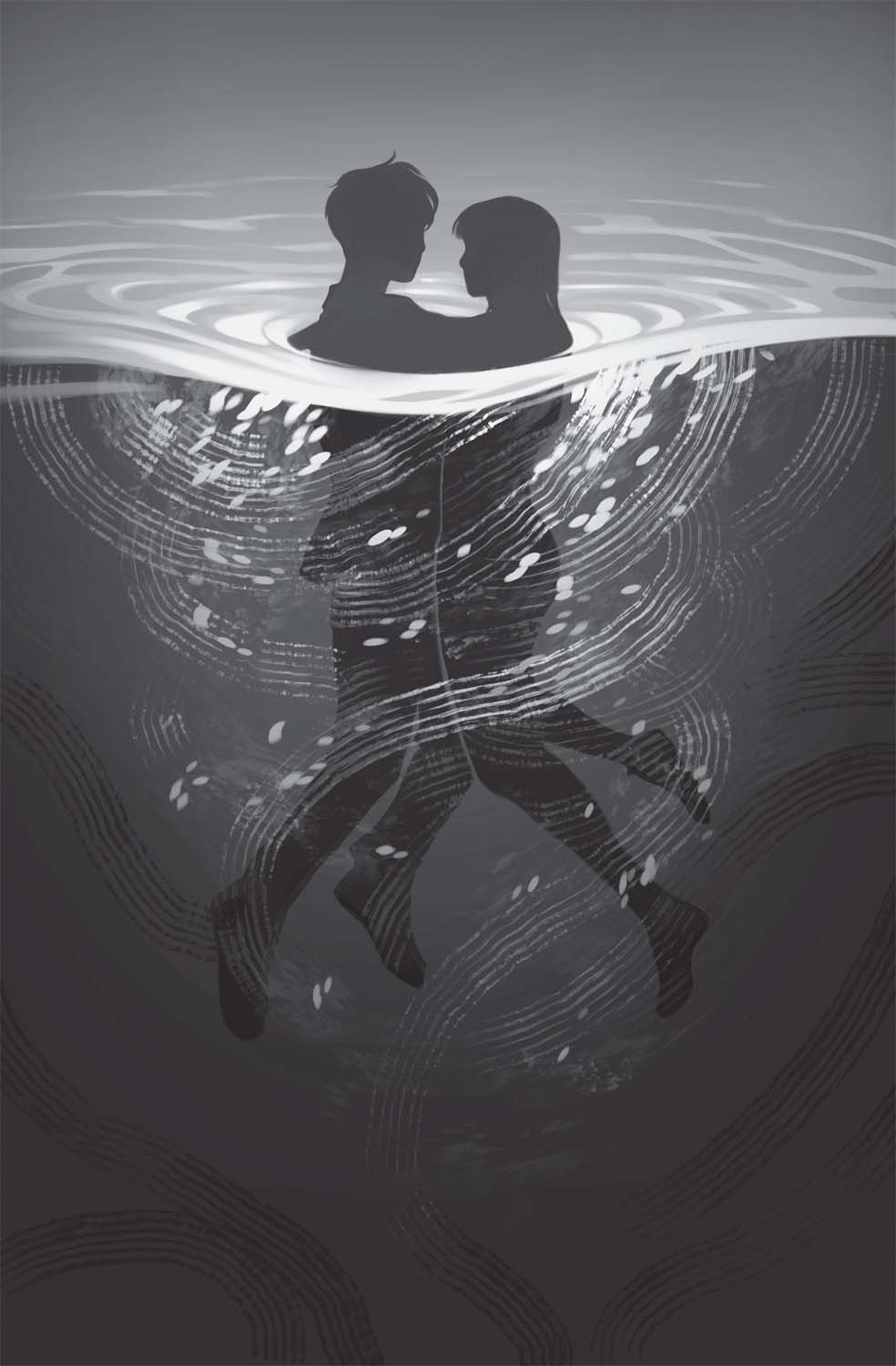
“Now, looking back, this is also one of my least favorite memories.” He pulled his hand away, his eyes averted. “Not because it’s painful, but because it reminds me that when I was in pain, you knew how to be there for me … but when you were in pain, I abandoned you.”
I winced at the brutality of the phrase, like he had smacked me.
“You didn’t …” I started. “I didn’t make it easy. I know that.”
We fell back into silence. The rain continued to pound, relentless, against the roof of my car. I watched it bounce off the windshield, which had smeared the ocean into an abstract painting, a blur of color.
“I was worried about you,” he said. “Instead of getting angry, I should have just told you that.”
I tried to say the words I wanted to say: Don’t worry about me. I’m fine. I wanted to smile through them and touch his arm and make a joke. After all, this was his last visitation. It was about him, not about me; about the last moments that we would likely share with each other, given that he was about to die.
“I’m still worried about you,” he said when I didn’t answer.
I didn’t carry him to this memory; the memory. It was weird how much intention mattered with the visitation tech, in this strange space between our two consciousnesses. I had to summon a memory, like pulling up a fishing line, in order to bring us both to it. Otherwise I was alone in my mind, for instants that felt much longer, little half-lifetimes.
After Matt’s dad died, there was a wake and a funeral. There were people from Matt’s church and from his mother’s work who brought over meals; there were group attempts to get him out of his house, involving me and Anna and Jack and a water gun aimed at his living room window. The long, slow process of sorting through his father’s possessions and deciding which ones to keep and which ones to give away—I had been at his house for that, as his mother wept into the piles of clothing and Matt and I pretended not to notice. Over time, the pain seemed to dull, and his mother smiled more, and Matt returned to the world, not quite the same as he had been before but steady nonetheless.
And then my mother came back.
I had two mothers: the one who had raised me from childhood, and the one who had left my father without warning when I was five, packing a bag of her things and disappearing with the old Toyota. She had returned when I was fourteen, pudgier and older than she had been when my father last saw her, but otherwise the same.
Dad had insisted that I spend time with her, and she had brought me to her darkroom, an hour from where we lived, to show me photographs she had taken. Mostly they had been of people caught in the middle of expressions or in moments when they didn’t think anyone was watching. Sometimes out of focus, but always interesting. She touched their corners in the red-lit room as she told me about each one, her favorites and her least favorites.
I hated myself for liking those photographs. I hated seeing myself in that darkroom, picking the same favorites as her, speaking to her in that secret language of art. But I could not help but love her, like shared genes also meant shared hearts, no point in fighting it.
I saw her a few times, and then one day she was gone again. Again with no warning, again with no good-byes, no forwarding address, no explanations. The darkroom empty, the house rented out to new people. No proof she had ever been there at all.
I had never really had her, so it wasn’t fair to think that I had lost her. And my stepmother, who was my real mother in all the ways that mattered, was still there, a little aloof, but she loved me. I had no right to feel anything, I told myself, and moreover, I didn’t want to.
But still, I retreated deep inside myself, like an animal burrowing underground and curling up for warmth. I started falling asleep in class, falling asleep on top of my homework. Waking in the middle of the night to a gnawing stomach and an irrepressible sob. I stopped going out on Friday nights, and then Saturdays, and then weekdays. The desk I kept reserved strictly for art projects went unused. My mother—stepmother, whatever she was—took me to specialists in chronic fatigue; she had me tested for anemia; she spent hours researching conditions on the internet, until one doctor finally suggested depression. I left the office with a prescription that was supposed to fix everything. But I never filled it.
It was at school, of all places, that Matt and I found our ending. Three months ago. It was only him and me in fifth period lunch, in April, when the air-conditioning was on full blast inside so we sat under an apple tree on the front lawn. I had been going to the library to sleep during our lunch hour for the past few weeks, claiming that I had homework to do, but that day he had insisted that I eat with him.
He tried to speak to me, but I had trouble focusing on what he was saying, so mostly I just chewed. At one point I dropped my orange and it tumbled away from me, settling in the tree roots a few feet away. I reached for it and my sleeve pulled back, revealing a healing wound, sealed but unmistakable. I had dug into myself with a blade to make myself feel full of something instead of empty—the rush of adrenaline, of pain, was better than the hollowness. I had looked it up beforehand to figure out how to sterilize the edge, how to know how far to go so I wouldn’t puncture something essential. I wanted to know, to have my body tell me, that I was still alive.
I didn’t bother to explain it away. Matt wasn’t an idiot. He wouldn’t buy that I had slipped while shaving or something. As if I shaved my arm hair.
“Did you go off the meds?” he said, his tone grave.
“What are you, my dad?” I pulled my sleeve down and cradled the orange in my lap. “Lay off, Matt.”
“Well, did you?”
“No. I didn’t go off them. Because I never started taking them.”
“What?” He scowled at me. “You have a doctor who tells you that you have a problem, and you don’t even try the solution?”
“The doctor wants me to be like everybody else. I am not a problem.”
“No, you’re a kid refusing to take her vitamins,” he said, incredulous.
“I don’t need to be drugged because I don’t act the way other people want me to!”
“People like me?”
I shrugged.
“Oh, so you’re saying you feeling like shit all the time is a choice.” His face was red. “Forgive me, I didn’t realize.”
“You think I want to pump my body full of chemicals so I can feel flat all the time?” I snapped. “How am I supposed to be myself when something is altering the chemistry of my brain? How can I make anything, say anything, do anything worthwhile when I’m practically lobotomized?”
“That isn’t what—”
“Stop arguing with me like you know something about this. Just because you have this emotional trump card in your back pocket doesn’t mean you get to decide everyone else’s mental state.”
“Emotional trump card?” he repeated, eyebrows raised.
“Yeah!” I exclaimed. “How can I possibly have a legitimate problem when I’m talking to Matt ‘My Dad Died’ Hernandez?”
It had just … come out. I hadn’t thought about it.
I knew that Matt’s father’s death wasn’t a tool he used to control other people. I had just wanted to hurt him. It had been a year, but he was still raw with grief, right under the surface, and embarrassed by it. I knew that, too. Between us was the memory of him sobbing in the car while he held tight to my hand.
After weeks of ignoring his texts, and lying to him about why I couldn’t come hang out, and snapping at every little thing, I guess me using his dad’s death against him was the last straw. Even then, I hadn’t blamed him. It was practically a reflex to blame myself anyway.
“Matt,” I started to say.
“You know what?” he said, coming to his feet. “Do whatever you want. I’m done here.”
“I made a mistake,” Matt said, and his mouth was the first thing to materialize in the new memory—the lower lip bigger than the top one, even his speech a little lopsided, favoring the dimpled side. “I should have started the story here.”
We were in the art room. It was bright white and always smelled like paint and crayons. There were racks along the back wall, where people put their projects to dry at the end of each class period. Before I had started failing art because I didn’t turn in two of my projects, I had come here after school every other day to work. I liked the hum of the lights, the peace of the place. Peace wasn’t something that came easily to me.
My classmates were in a half circle in front of me. I was sitting in a chair, a desk to my right, and there were wires stretching from electrodes on my head to a machine beside me. The screen faced my classmates. Even without the electrodes, I knew how old I was by the color of my fingernails—my freshman year of high school, I had been obsessed with painting my nails in increasingly garish and ugly colors, lime green and sparkly purple, glow-in-the-dark blue and burnt orange. I liked to take something that was supposed to be pretty and make it ugly instead. Or interesting. Sometimes I couldn’t tell the difference between the two.
This was the second major art project of my freshman year, after the photographs of the love rocks. I had become fascinated by the inside of the brain, like it would give me explanations for everything that had happened to me and everything happening inside me. A strange stroke of inspiration, and I had applied for a young artists’ grant to purchase this portable equipment, at the forefront of medical advances in neuroscience. A doctor had taught me how to use it, spending several hours with me after school one day, and I had wheeled it into my art class soon afterward.
I didn’t say anything to explain it, just hooked myself up to the machine and showed the class my brain waves and how I could alter them. I did a relaxation exercise first, showing my brain on meditation; then I did math problems.
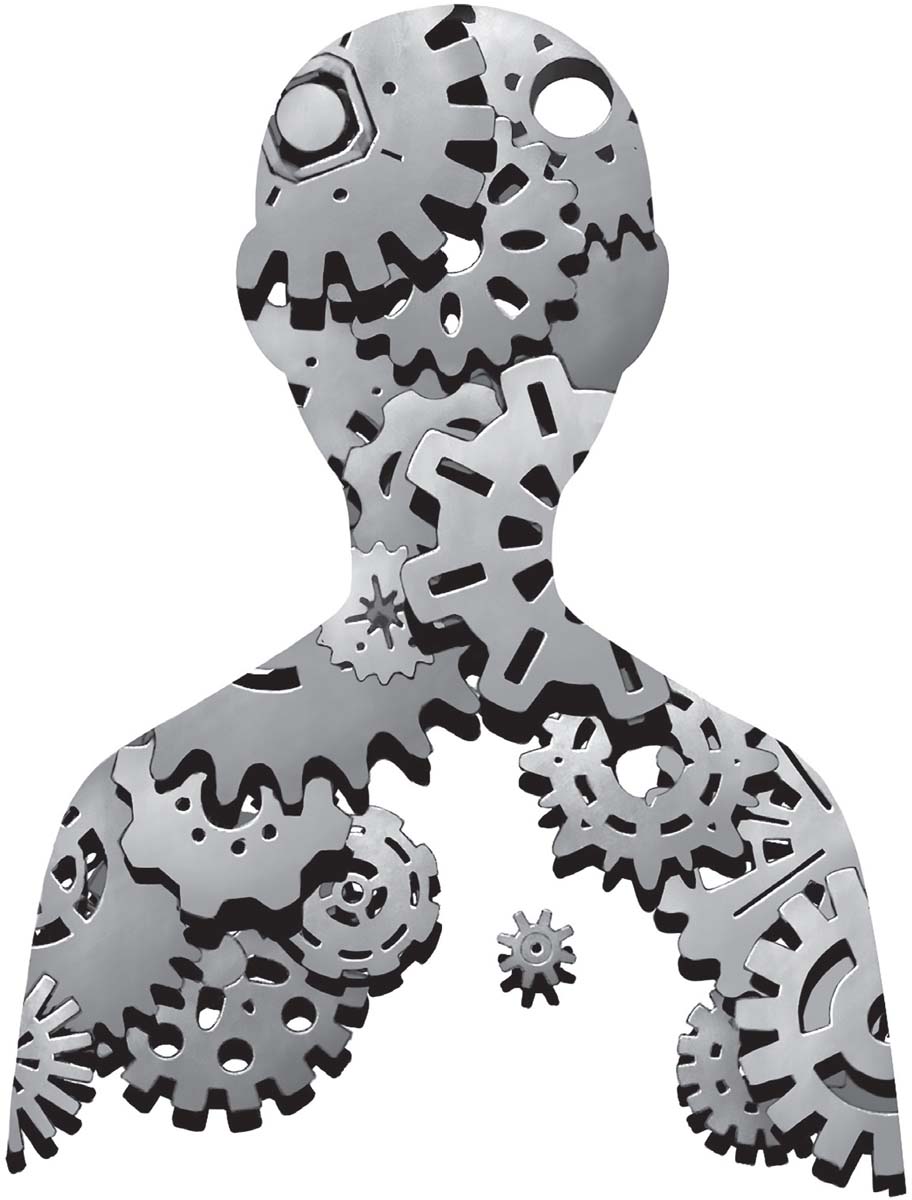
I listened to one of my favorite comedians. I recounted my most embarrassing memory: sneezing and getting snot all over my face during a school presentation in sixth grade. My brain waves shifted and changed depending on what I was doing.
I kept my brain waves clean of emotional turmoil—the muck of my mother not coming downstairs for breakfast that one morning when I was five, the empty space in the driveway where her car had been. I kept secret the chaos of my heart and guts. I was only interested in showing the mechanics of my mind, like the gears in a clock.
When I finished, the class greeted me with scattered applause. Unenthused, but that wasn’t surprising. They never liked anything I did. One of the girls raised her hand and asked our teacher, “Um … Mr. Gregory? Does that even count as art? I mean, she just showed us her brain.”
“It counts as performance art, Jessa,” Mr. Gregory said, taking off his glasses. “Think about what you just said—she showed us her brain. An act of vulnerability. That is incredibly rare, in life and in art. Art is, above all things, both vulnerable and brave.”
He gave me a wink. Mr. Gregory was part of the peace of this room. He always seemed to understand what I was getting at, even if I couldn’t quite get myself there.
“Why are we here?” I said to Visitation Matthew, frowning. “We didn’t even know each other yet.”
Matt was sitting near the back of the class, on the side, his head bent over a notebook. He smiled at me within the visitation. Dimpled cheek, crinkled eyes, a flash of white teeth.
“This is where our story started,” he said. “You were so … I mean, their opinions were completely irrelevant to you. It’s like while everyone else was listening to one song, you were listening to another. And God, I loved that. I wanted it for myself.”


